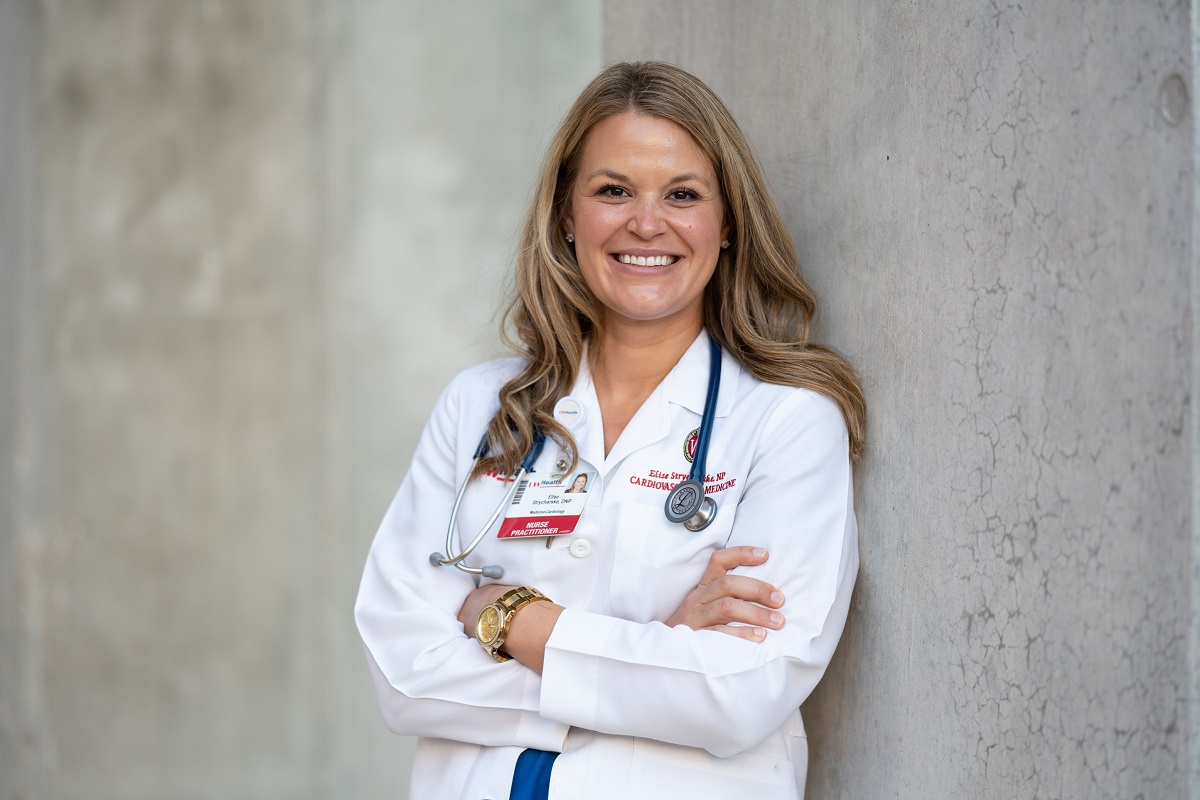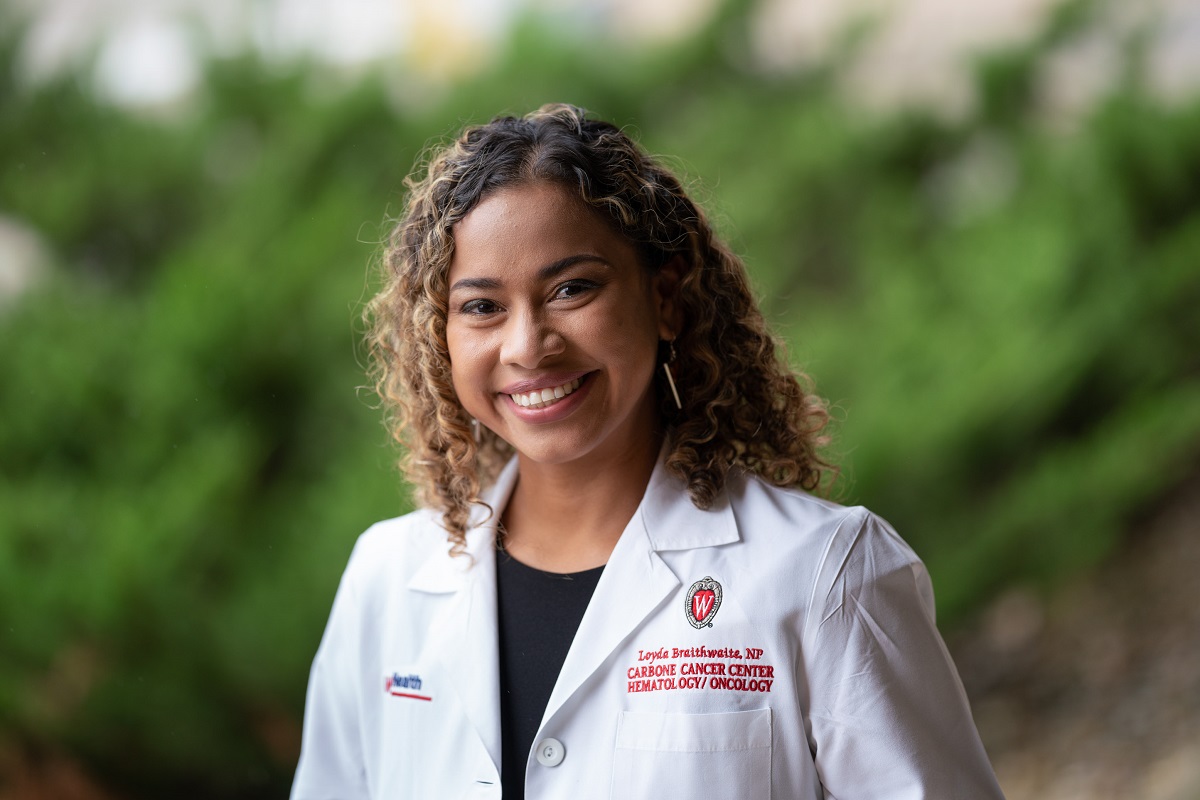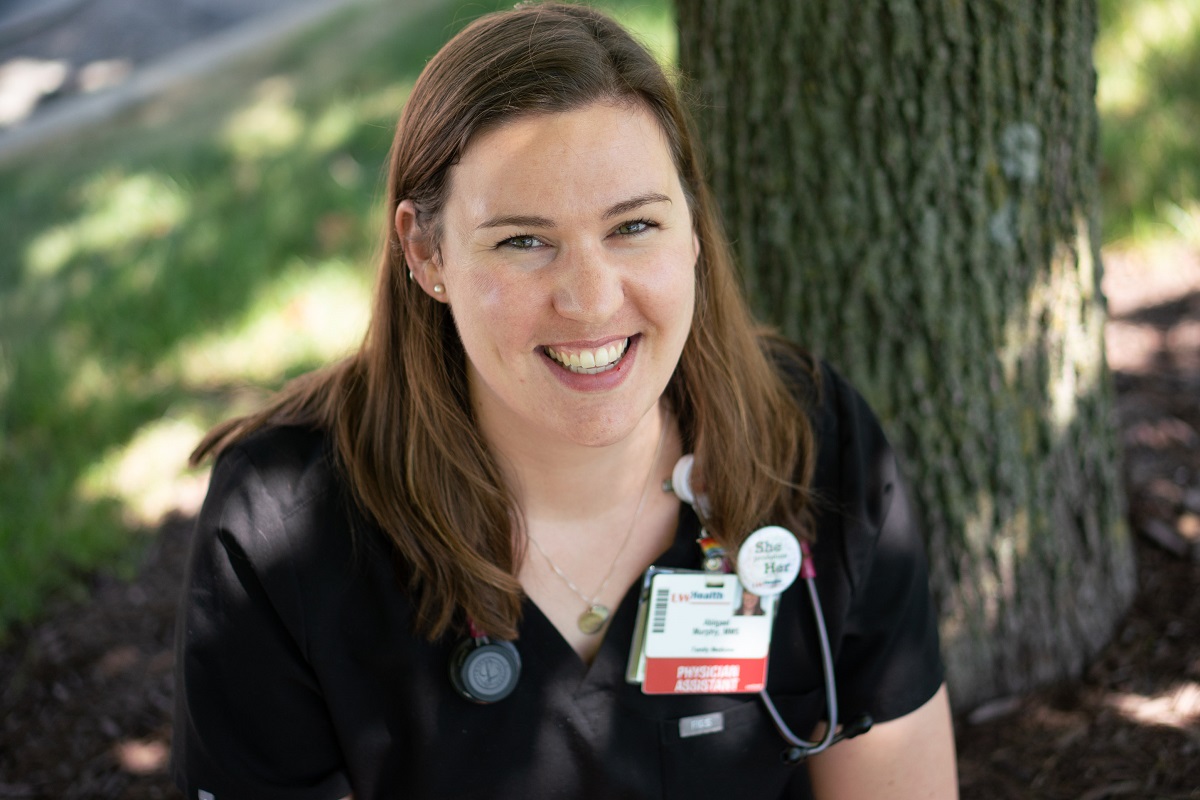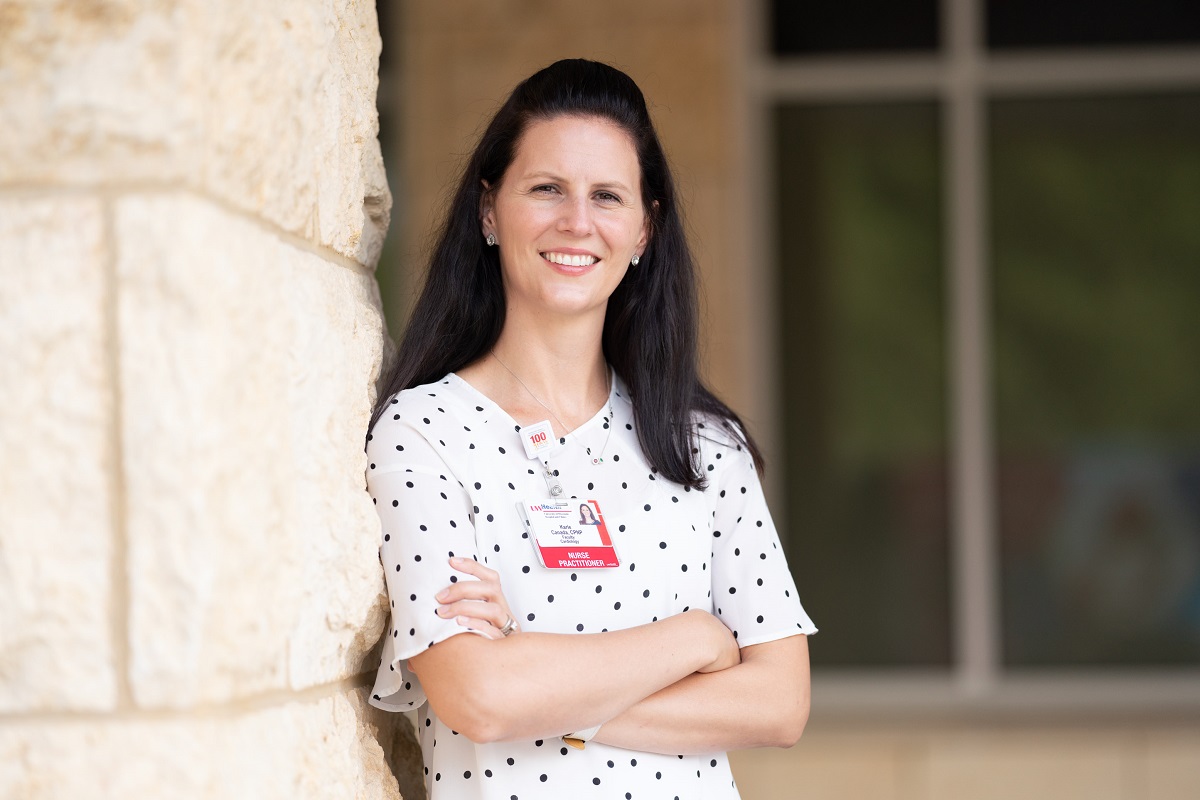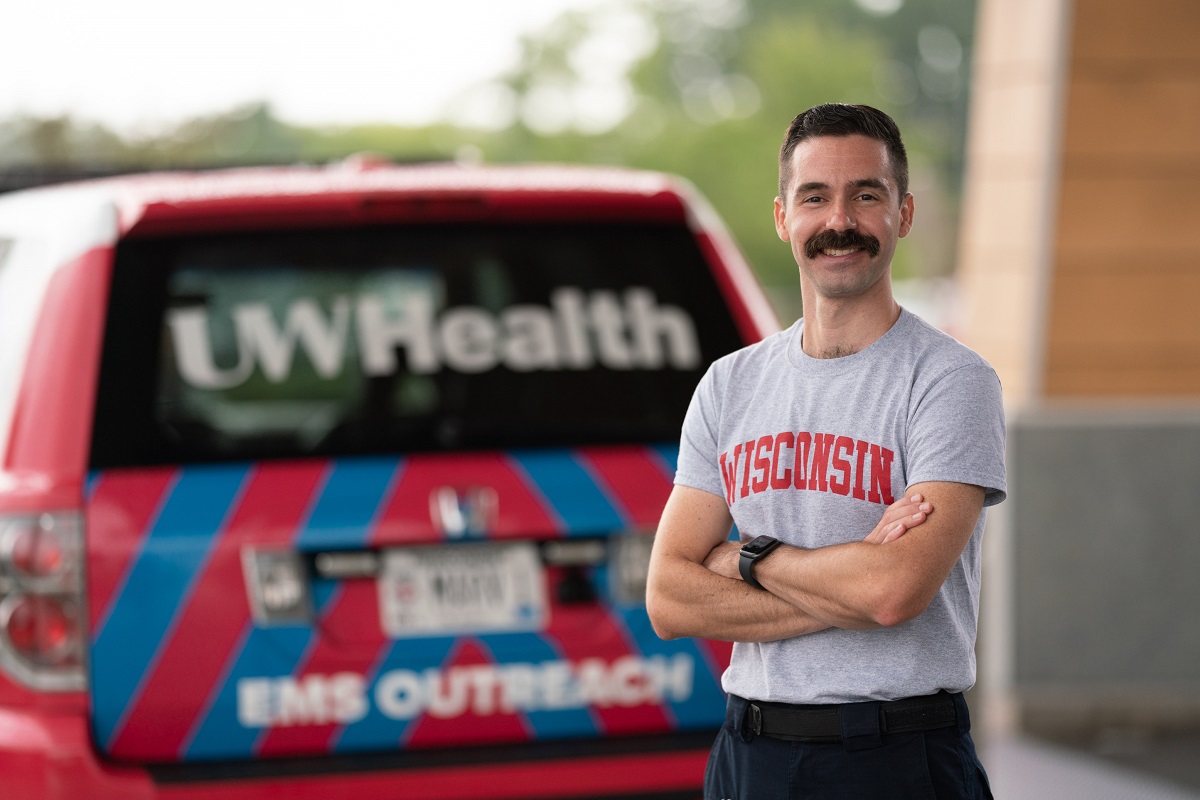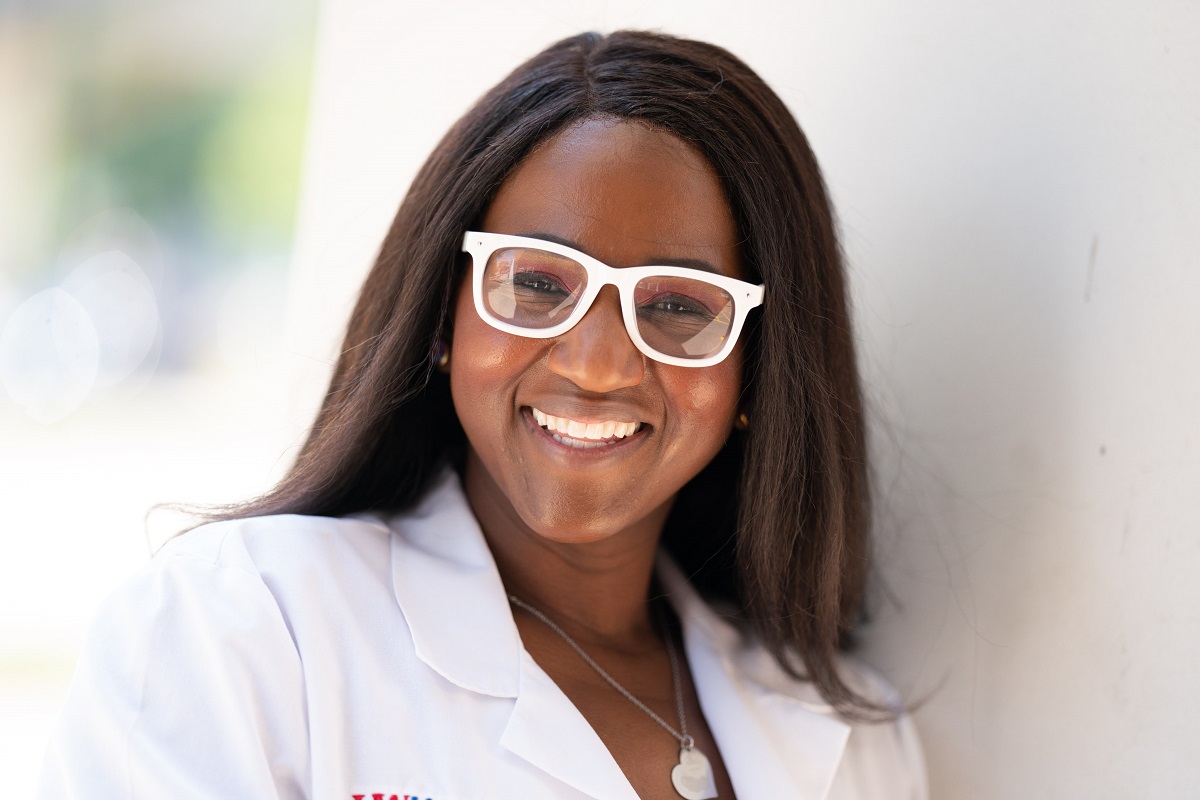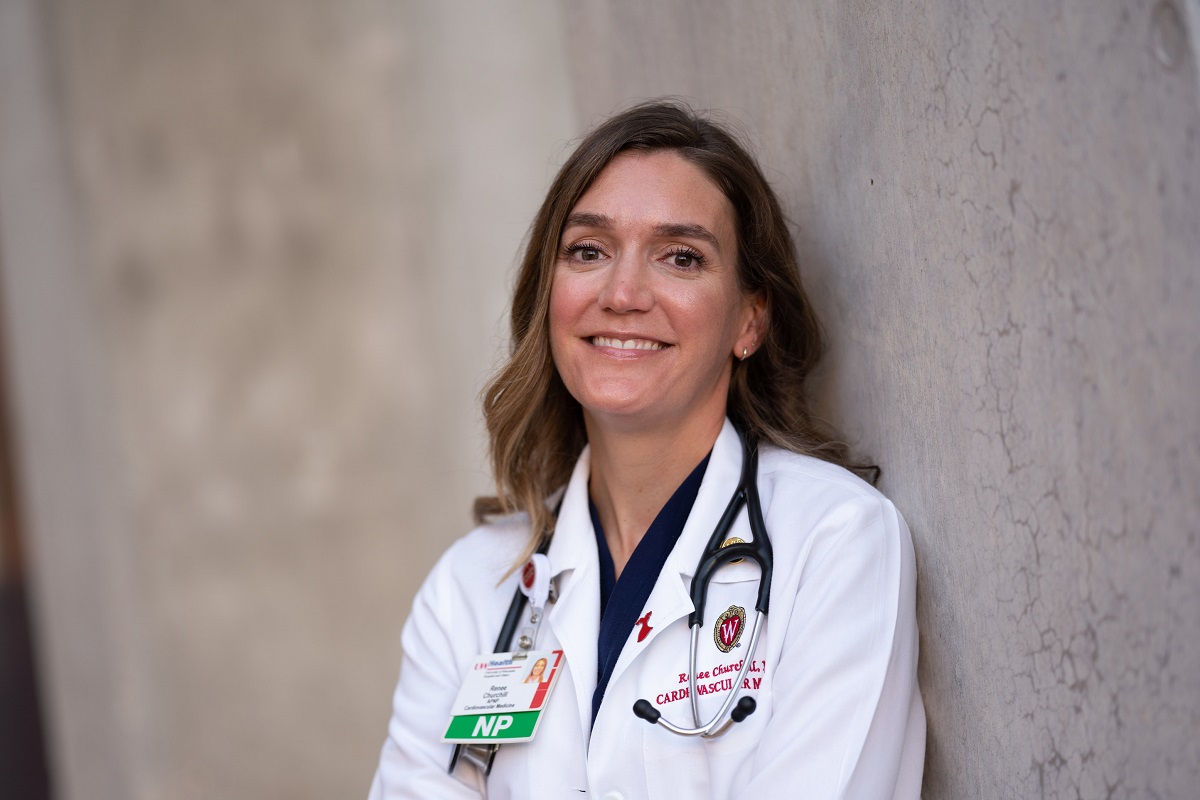
APP Champion: Renee Churchill, NP, Cardiovascular/Transplant Medicine, University Hospital, East Madison Hospital, Research Park Clinic
Renee grew up on a farm in Wisconsin — the second oldest of five girls — and knew she wanted to be a nurse, even at a young age.
For Renee, working at UW Health is a family affair. Her husband, Peter, works in the neurosurgery intensive care unit (ICU) at University Hospital and her younger sister, Janelle, is a nurse in outpatient oncology and shadowed her at UW Health.
Renee’s nursing career started at Aurora St. Luke’s Medical Center in Milwaukee in the surgical intensive care unit (SICU). “Working with nurse practitioners while I was a nurse was inspiring. I wanted to challenge myself and continue to learn and grow professionally so I decided to become a nurse practitioner.”
Renee had previous ICU and transplant experience. She first started taking care of patients with end-stage heart failure and managing their ventricular assist devices. These are used in patients who have weakened hearts and/or heart failure. She really loved the continuity of care and getting to know her patients and their families.
“When the new heart transplant advanced practice provider (APP) position opened in January, I jumped in. The program is growing and it’s incredibly exciting to see,” says Renee.
She says this position has given her the opportunity to help define and build the role because it is so new and still evolving. “I’ve been able to participate in quality improvement projects and medical management meetings, which help identify ways to improve the transplant process and make it easier for our patients. It’s all about doing better for our patients and helping them be successful at home.”
Renee’s role as a transplant medicine nurse practitioner gives her the opportunity to help patients throughout their transplant journey. “Many transplant patients have a difficult road to recovery. We are so invested in their recovery. Partnering with my patients to help them through their hospitalization and returning home has been incredibly rewarding. Seeing our patients in clinic, post-transplant and thriving, is the best part of the job. They share stories, talk about plans and discuss new things they are involved in — it’s amazing.”
Renee says the team she works with is very dedicated to patients and the transplant program. “We all work really hard to ensure our patients are successful post-transplant. My colleagues are key to this success, knowing we can count on one another and working together is so important.”
When asked to recall a memorable experience that stays with her over the years, she says watching any patient leave the hospital post-transplant is always an incredible moment. She adds that it’s hard to pick one single moment, but recalls a patient who was being discharged earlier this spring after a long and complicated post-transplant course. “The entire unit paused as they left the unit to go home. About 30 employees stopped what they were doing, lined up to watch the patient leave and applauded as they went by. It was truly remarkable and so heartwarming. This serves as a reminder of why we work so hard. We are able to make a difference and improve our patients’ quality of life.”

